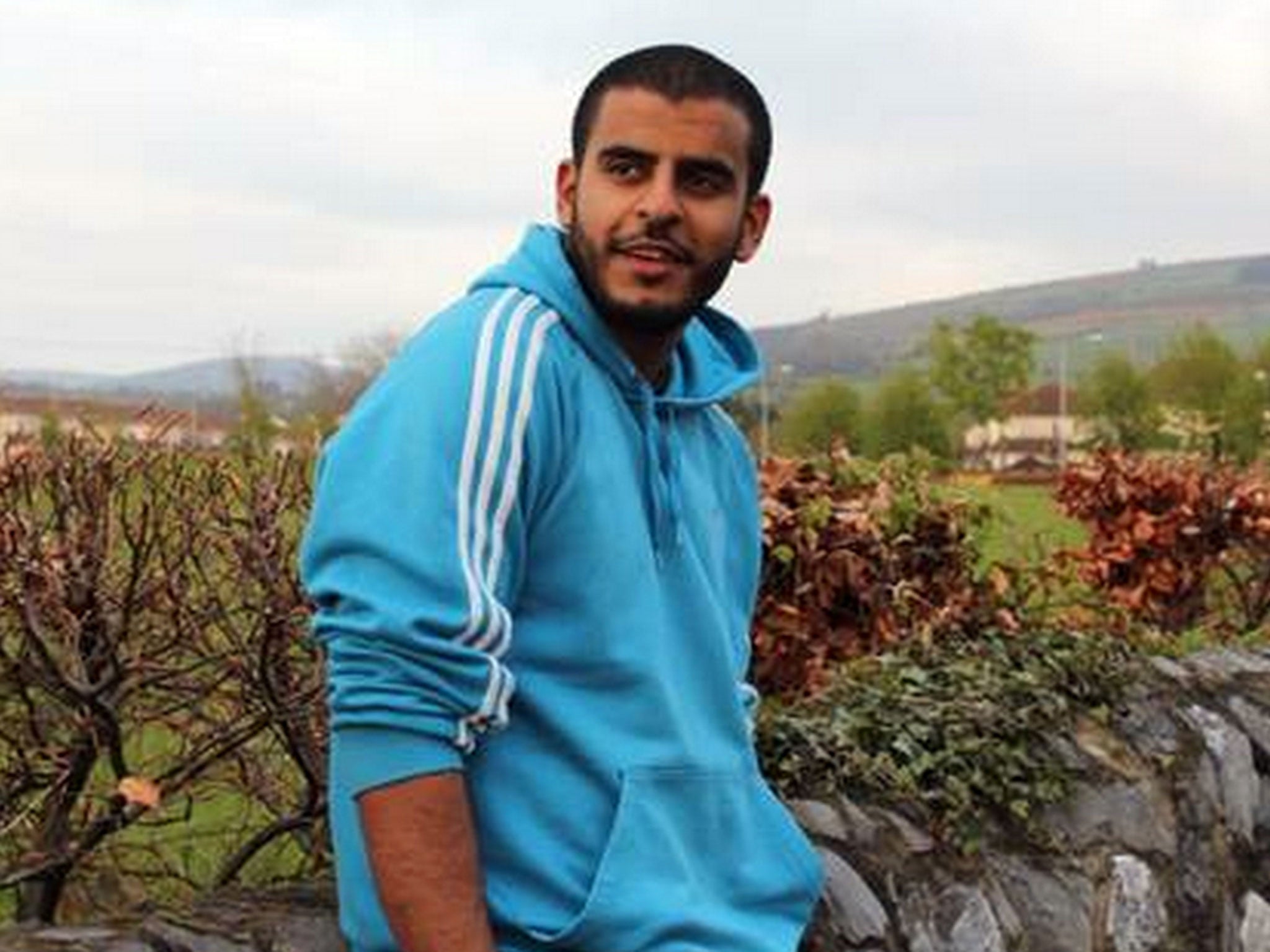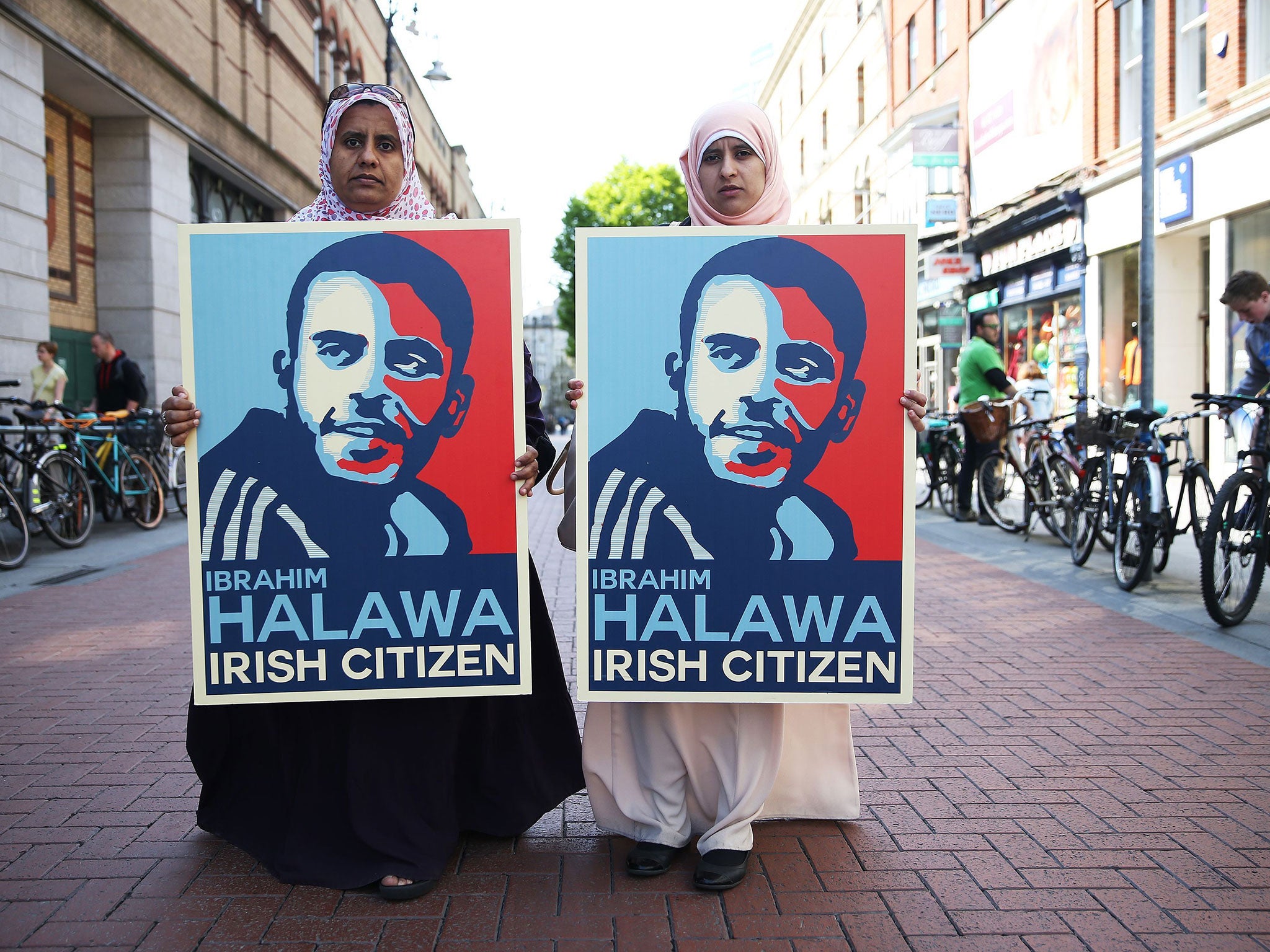Ibrahim Halawa freed: Irish student facing death penalty in Egypt acquitted after four years
He was detained on a slew of charges, including murder, arson and illegal possession of weapons

Your support helps us to tell the story
From reproductive rights to climate change to Big Tech, The Independent is on the ground when the story is developing. Whether it's investigating the financials of Elon Musk's pro-Trump PAC or producing our latest documentary, 'The A Word', which shines a light on the American women fighting for reproductive rights, we know how important it is to parse out the facts from the messaging.
At such a critical moment in US history, we need reporters on the ground. Your donation allows us to keep sending journalists to speak to both sides of the story.
The Independent is trusted by Americans across the entire political spectrum. And unlike many other quality news outlets, we choose not to lock Americans out of our reporting and analysis with paywalls. We believe quality journalism should be available to everyone, paid for by those who can afford it.
Your support makes all the difference.An Irish citizen held for four years in Egypt and threatened with the death penalty has been acquitted of all charges.
Ibrahim Halawa, from Dublin, was 17 when he was arrested during a protest in Cairo in 2013.
He was detained by the Egyptian army during a demonstration staged by supporters of the Muslim Brotherhood after their elected leader, Mohamed Morsi, was ousted from power in a military coup.
Mr Halawa is the son of a senior member of the Muslim Brotherhood, an Islamist group that swept to power in elections after the 2011 uprising, but was later outlawed as a terrorist organisation.
He was accused along with 500 others, including his three sisters, of murders, bombing, possession of firearms and explosives, arson, violence against police and desecration of the Al Fatah mosque in Cairo's central Ramses Square.
Mr Halawa's sisters were released three months after their arrest and allowed to return home to Dublin, but he remained in the Wadi Natrun jail, where he says he was kept in solitary confinement, often without light or a toilet.
His family said he was beaten and refused treatment for a gunshot wound he sustained shortly before his arrest.
Mr Halawa was cleared of all charges on Monday – one of 52 who were acquitted.
A further 43 defendants were sentenced to life imprisonment – 25 years under Egyptian law – while 399 defendants were sentenced to between five and 15 years.
Mr Halawa, now aged 21, was on a family holiday at the time in his parents' homeland.
He is unlikely to be released immediately due to delays in the Egyptian judicial and prison system.
Maya Foa, director of human rights group Reprieve, told The Independent: "Ibrahim has been repeatedly tortured throughout his detention; he’s reported being beaten with metal chains, stamped in the back, threatened with execution, and denied medical treatment.
“Today’s ruling should be welcomed, but let’s be clear – this trial made a mockery of justice. Protesters should never have been rounded up and threatened with the death penalty, and the trial should not have dragged on for as long as it did. The proceedings in this case and other mass trials were always more about crushing dissent than seeing justice done."
Amnesty International, which called the mass trial “grossly unfair”, said all 442 other defendants in the case should be retried.
The group said there was “no evidence” that Mr Halawa was involved in the violence, adding that he was “detained solely for peacefully exercising his rights to freedom of expression and assembly”.

“He is a prisoner of conscience who should never have been detained in the first place,” said Najia Bounaim, North Africa research director at Amnesty.
“This trial has been a cruel farce from start to finish. From relying on questionable testimonies to dismissing key evidence and depriving the defendants of the proper means of defending themselves, these proceedings expose the deep flaws in Egypt’s notorious criminal justice system.”
Amnesty said there was evidence to support the case against just two of the defendants, despite hundreds standing trial.
Lawyers told the charity the trial defendants were held behind a glass screen preventing them from hearing the proceedings or being able to participate.
Ireland's Taoiseach Leo Varadkar welcomed the news of Mr Halawa's acquittal. The Irish Foreign Affairs Minister Simon Coveney, said: "Ibrahim Halawa's name has been cleared and his innocence is confirmed. I look forward to him being released from custody without delay."
Nosayba Halawa said her brother would be “very happy and delighted” with the outcome.
“We couldn't believe [the news] after all the suffering. It is coming to an end,” she said.
Join our commenting forum
Join thought-provoking conversations, follow other Independent readers and see their replies
Comments